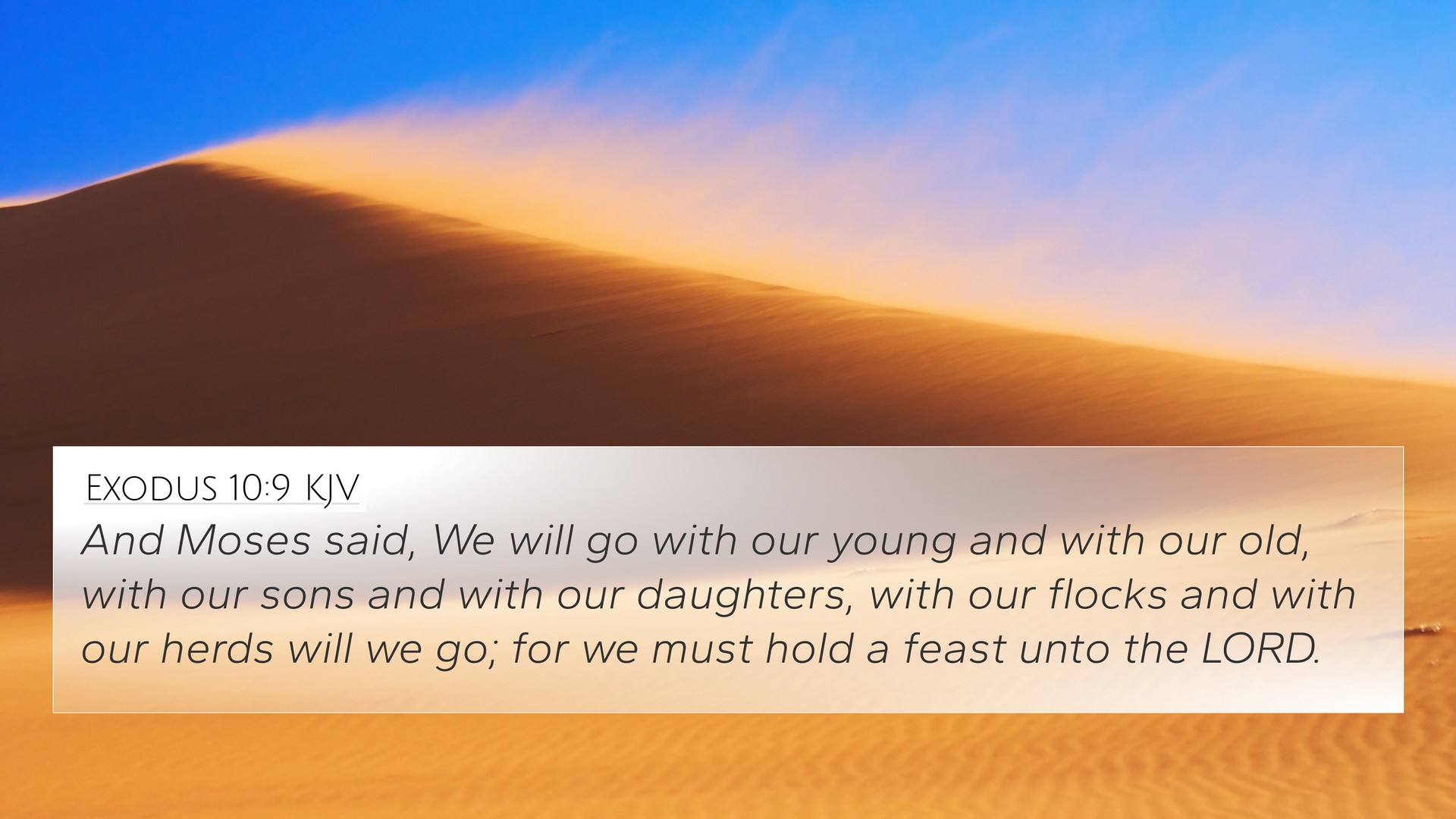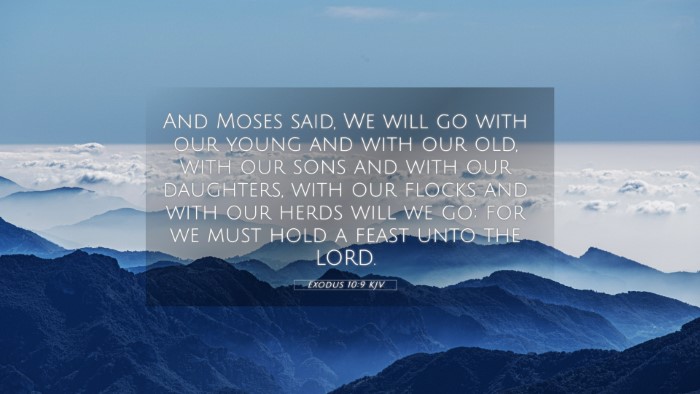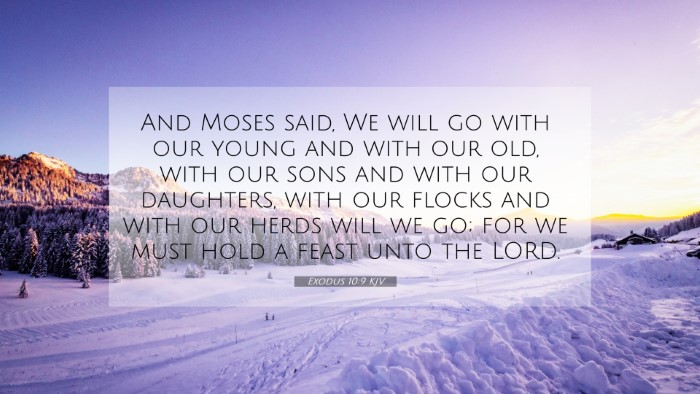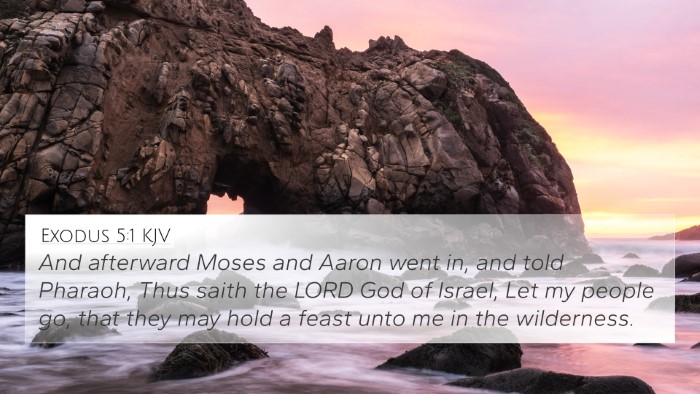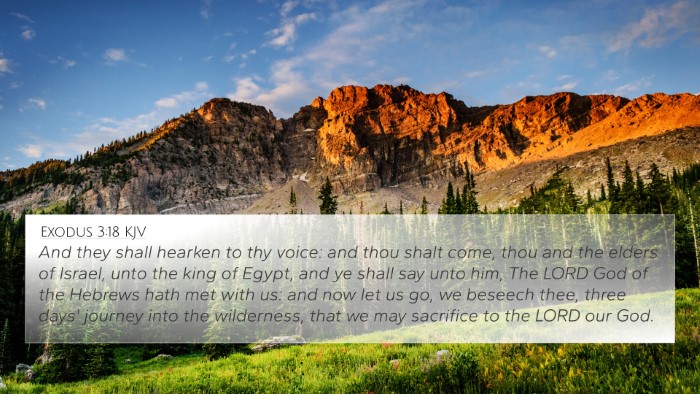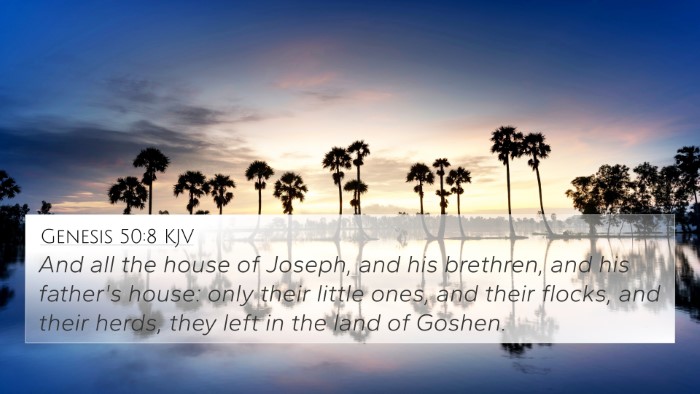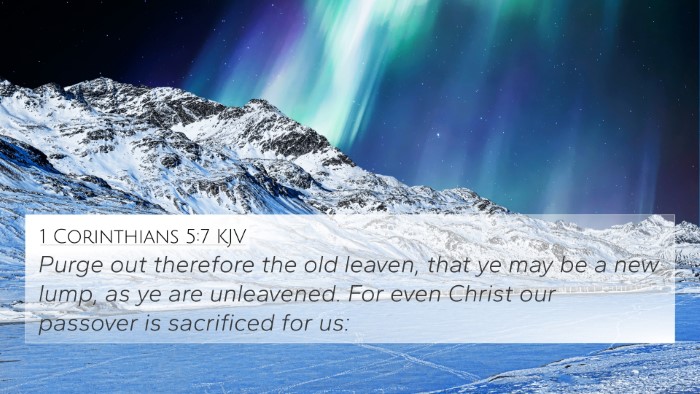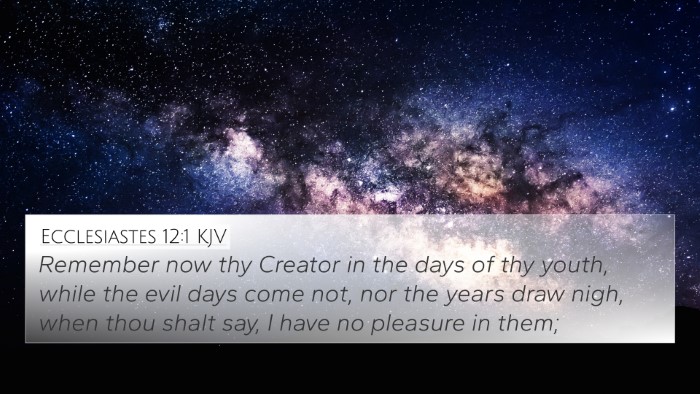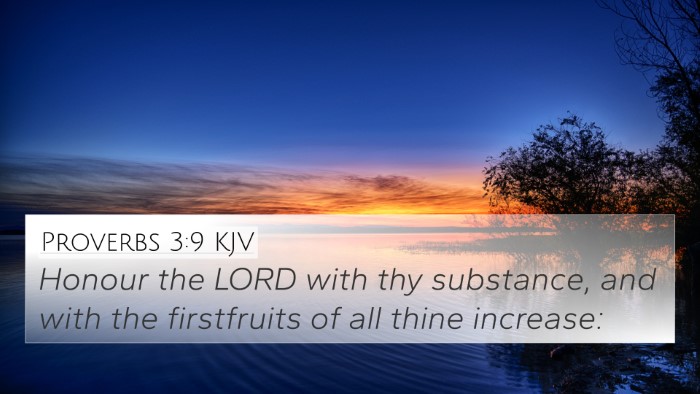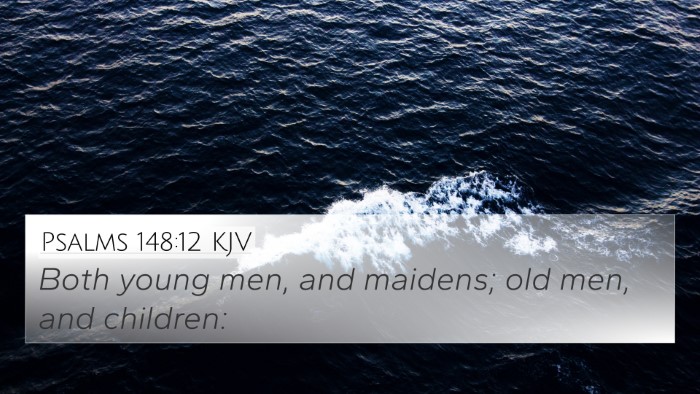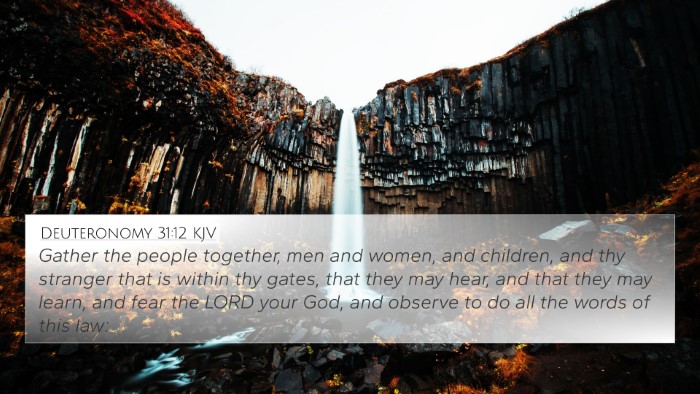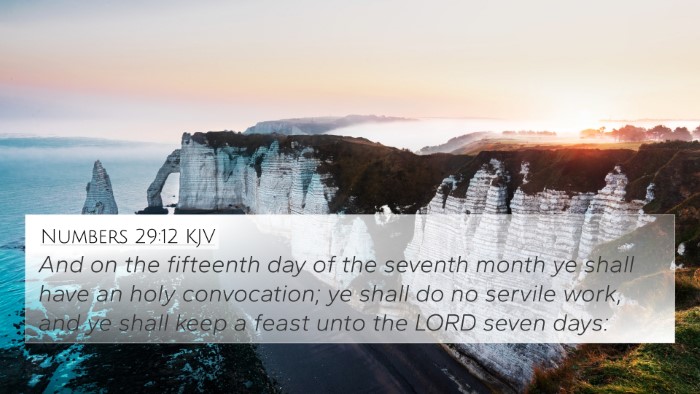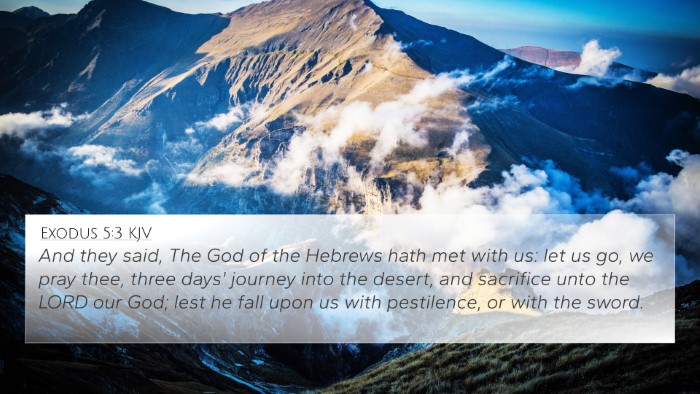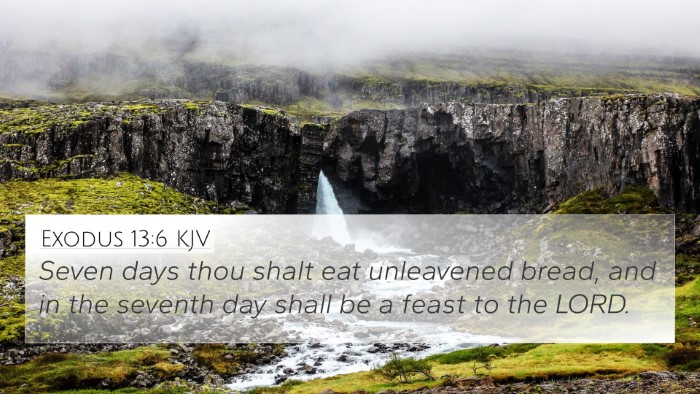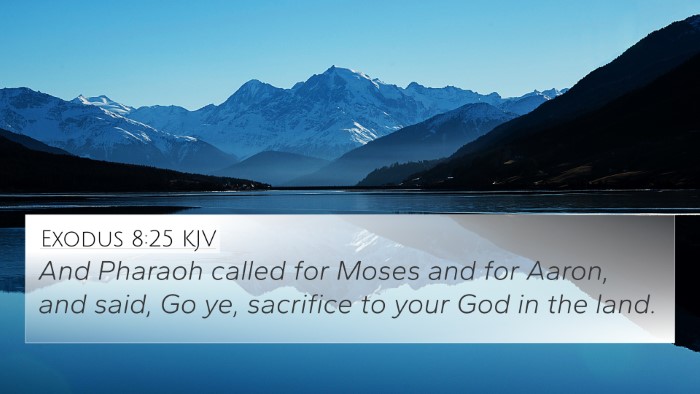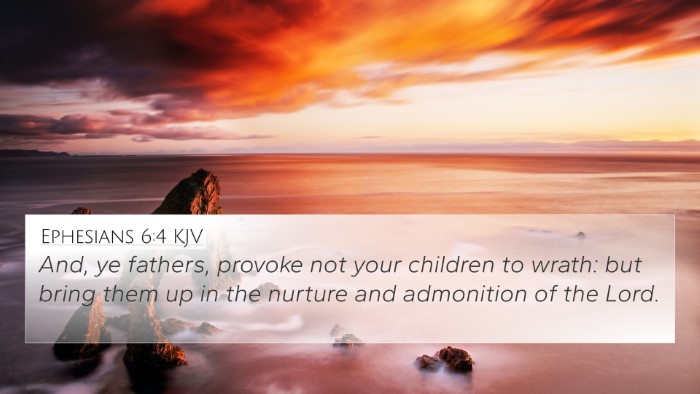Summary of Exodus 10:9
Exodus 10:9 states: “And Moses said, We will go with our young and with our old, with our sons and with our daughters, with our flocks and with our herds will we go; for we must hold a feast unto the Lord.” This verse conveys the determination of Moses and the Israelites to worship God, emphasizing that every member of their community, including their possessions, would participate in this act of worship.
Interpretations and Commentary Insights
According to commentary from Matthew Henry, this verse illustrates the unity and comprehensive participation of the entire Israelite community in worship. No one is excluded, which signifies the importance of collective worship in the life of God's people. Henry emphasizes that true worship involves the whole family and the community, reflecting the holistic nature of Christianity where every aspect of life is dedicated to God.
Albert Barnes adds that the presence of all generations in worship indicates a recognition of God's power across different ages. The commitment to bring their flocks and herds symbolizes their desire to offer sacrifices, showcasing their reverence and the significance of their worship to God. This collective effort not only demonstrates obedience to God’s command but also serves as a testament to their faith and identity as His chosen people.
Adam Clarke remarks on the phrase “hold a feast unto the Lord,” noting it represents a special observance dedicated to God, which would later be established in the religious calendar of Israel. Clarke highlights that this verse sets the stage for the Passover, linking this moment to the larger narrative of redemption throughout the Scripture. The festival signifies not just a ritual but also remembrance of God's deliverance.
Bible Cross-References for Exodus 10:9
- Exodus 12:3 - The command to prepare for the Passover.
- Deuteronomy 16:16 - The requirement for all family members to participate in communal feasts.
- Psalm 100:4 - Entering God’s presence with thanksgiving and praise, emphasizing collective worship.
- Luke 2:41-42 - The tradition of going to Jerusalem for the Passover, signifying family involvement in religious observances.
- Matthew 26:17 - Preparation for the Last Supper, linking New Testament worship closure back to the Exodus tradition.
- Acts 2:44-47 - Early Christians' communal life and worship, mirroring the collective nature seen in Exodus 10:9.
- 1 Corinthians 10:16 - Discusses the Lord's Supper, connecting communal observance with worship.
Connecting Themes
In Exodus 10:9, we observe key themes that resonate throughout Scripture:
- Community Worship: The verse emphasizes the importance of coming together as a community to worship God. This theme of unity in worship is seen throughout the Bible, encouraging believers to collectively honor God.
- Generational Faith: The inclusion of all ages signifies the importance of passing faith down through generations, a theme that is reiterated in Deuteronomy 6:6-7.
- God’s Deliverance: The verse serves as a precursor to the Passover, a foundational act of deliverance for Israel which finds its culmination in the New Testament through Christ's sacrifice.
- Holistic Worship: The mention of flocks and herds suggests that worship involves all aspects of life, reflecting the way in which all that we have should be offered to God.
Conclusion
This deep exploration of Exodus 10:9 reveals a multifaceted understanding of worship that encompasses community, generations, and every aspect of life. By employing scriptural cross-references and diving into thematic connections, we see how this verse is interwoven with both Old and New Testament teachings, providing rich material for further study and reflection.
